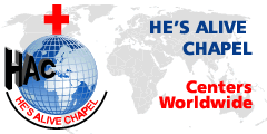
“So Moses said to Aaron, “Take a censer and put fire in it from the altar, put incense on it, and take it quickly to the congregation and make atonement for them; for wrath has gone out from the LORD. The plague has begun.” Then Aaron took it as Moses commanded, and ran into the midst of the assembly; and already the plague had begun among the people. So he put in the incense and made atonement for the people. And he stood between the dead and the living; so the plague was stopped” (Numbers 16:46-48 NKJV).
“Let the priests, who minister to the LORD, Weep between the porch and the altar; Let them say, ‘Spare Your people, O LORD, And do not give Your heritage to reproach, That the nations should rule over them. Why should they say among the peoples, ‘Where is their God?’ ‘ ” (Joel 2:17 NKJV).
PRINCIPLES OF INTERCESSION.
Aaron’s intervention is an example of intercession. An intercessor is one who stands between two people. Aaron stood between the living and the dead.
In intercessory prayer you allow the needs of others to take preference over your personal needs. When praying an intercessory prayer, one makes plea and meditation before God on behalf of oneself but most importantly for others. Jesus Christ, our Lord, shows us a perfect intercessory prayer example in the Bible. The Bible says Jesus Christ makes intercession for us at the right hand of God (Romans 8:34).
According to Psalm 141:2, the incense which Aaron carried into the midst of the plague represents prayer. Moses sent Aaron to intervene in the consuming plague because he was the High Priest who makes atonement.
Aaron’s intervention paid off, the plaque was stopped (verse 50). We must keep on praying until the COVID-19 stops. Though the children of Israel held Moses and Aaron accountable for the people who had been killed by the Lord, it was the intervention of Moses and Aaron for the entire nation that eventually saved them from destruction because of their opposition to God.
Prayers avert danger and plagues. Ten plagues were mentioned in the book of Numbers, each plague was solved either by prayer, atonement or by judgement or a combination of both as in Numbers 11.
Observe the reactions of Moses to the rebellion and accusations levied on him by Korah and the other leaders of Israel. On each occasion when God wanted to judge them he and Aaron fell on their faces pleading with God. See verses 4, 22 and 45. In Moses, we see a consummate Intercessor. An Intercessor is moved by compassion than self-interest.
An Intercessor is an interventionist who tries to avert danger or an imminent danger through prayer.
We have other examples of interventions that depict what intercession is all about. In Numbers 25:5-9 we see the intervention of Phinehas that stopped a plague when the children of Israel got involved in worshiping Baal of Peor used by the Moabites to lure the leaders. His intervention stopped the plague among the children of Israel.
The Bible teaches that one ministry of JESUS executes today is the ministry of Intercession (Romans 8:34; Heb.7:25). In Luke 11: 5-8, Jesus’s taught about intercession. The Intercessor pleaded persistently for what he does not have so that could have something to give to his friend.
In Galatians 4:19, Paul engaged in Intercession for the Christians in Galatia.
WHY IS OUR INTERVENTION NECESSARY?
Your prayer could make a difference between the living and the dead.
Our prayers can see our communities through the present hunger, unemployment and mental health arising from COVID-19. We must remember that God has placed us as watchmen over the nation (Isaiah 62:6-7).
In Nehemiah 4:13-14, he urged the leaders of Israel to use their swords and spares to fight for their families. When we intercede we are fighting with prayers for our families.
AUSTEN UKACHI
Senior Pastor, He’s Alive Chapel, Lagos




